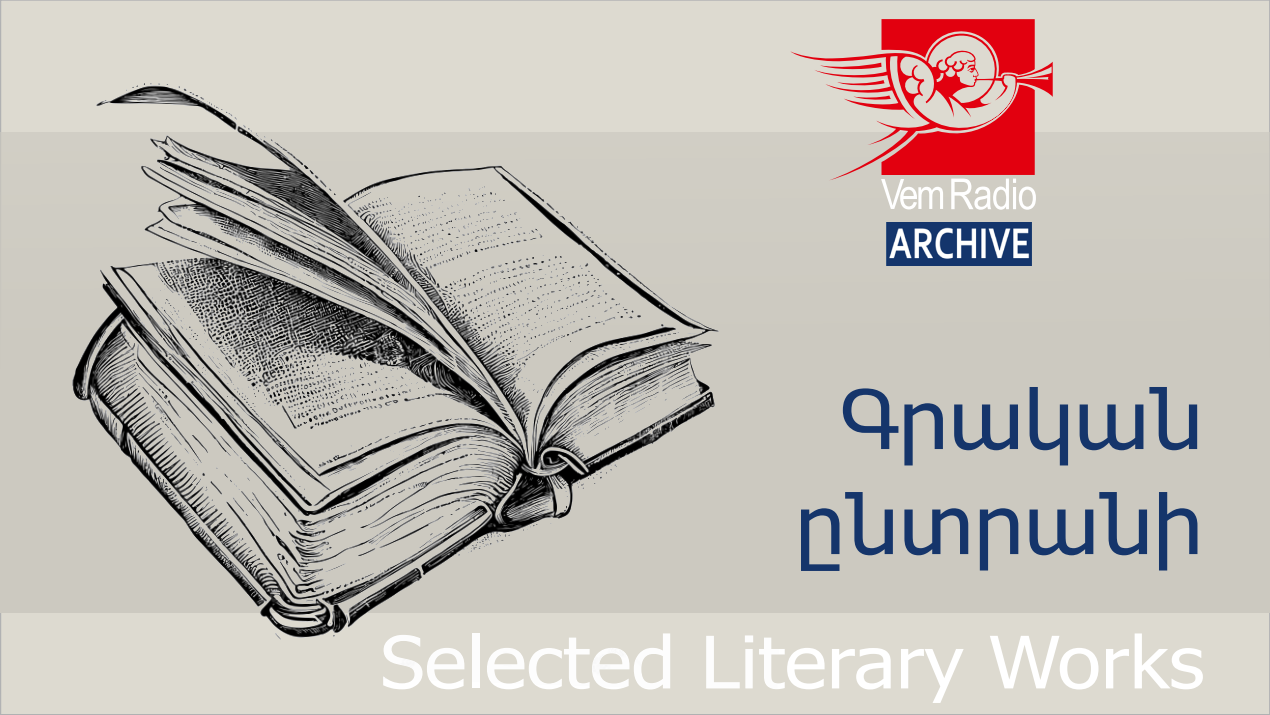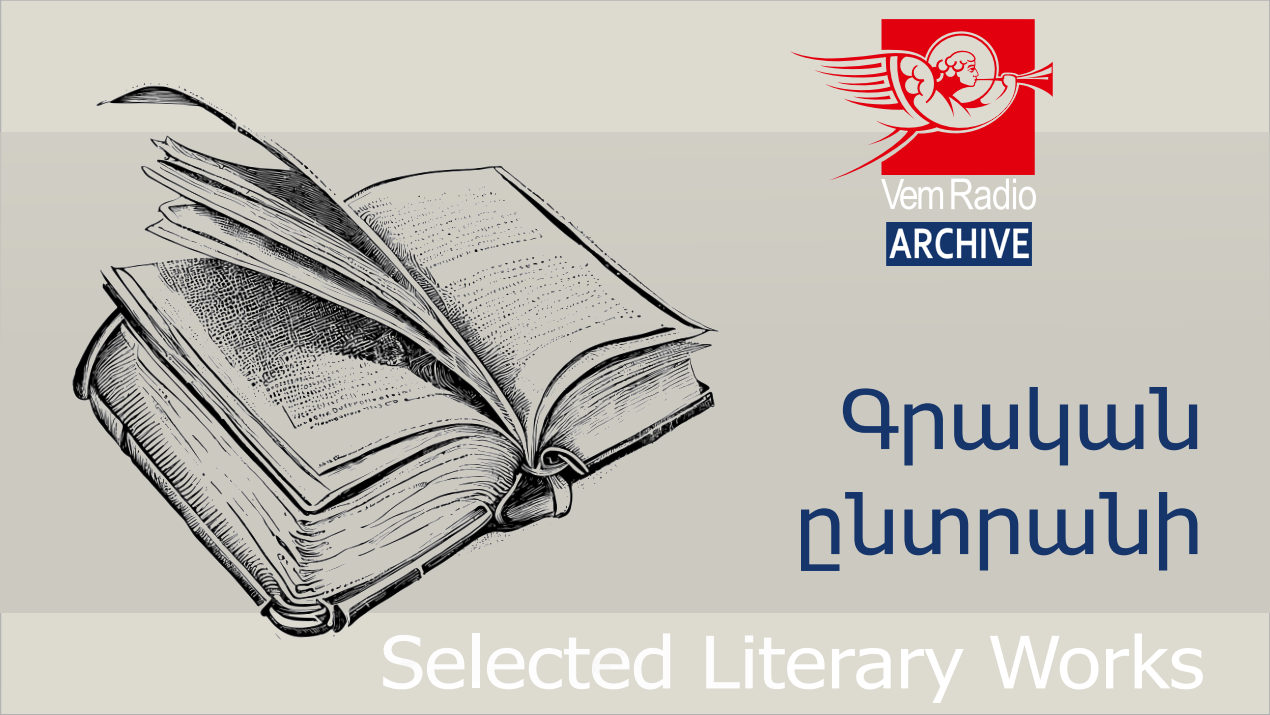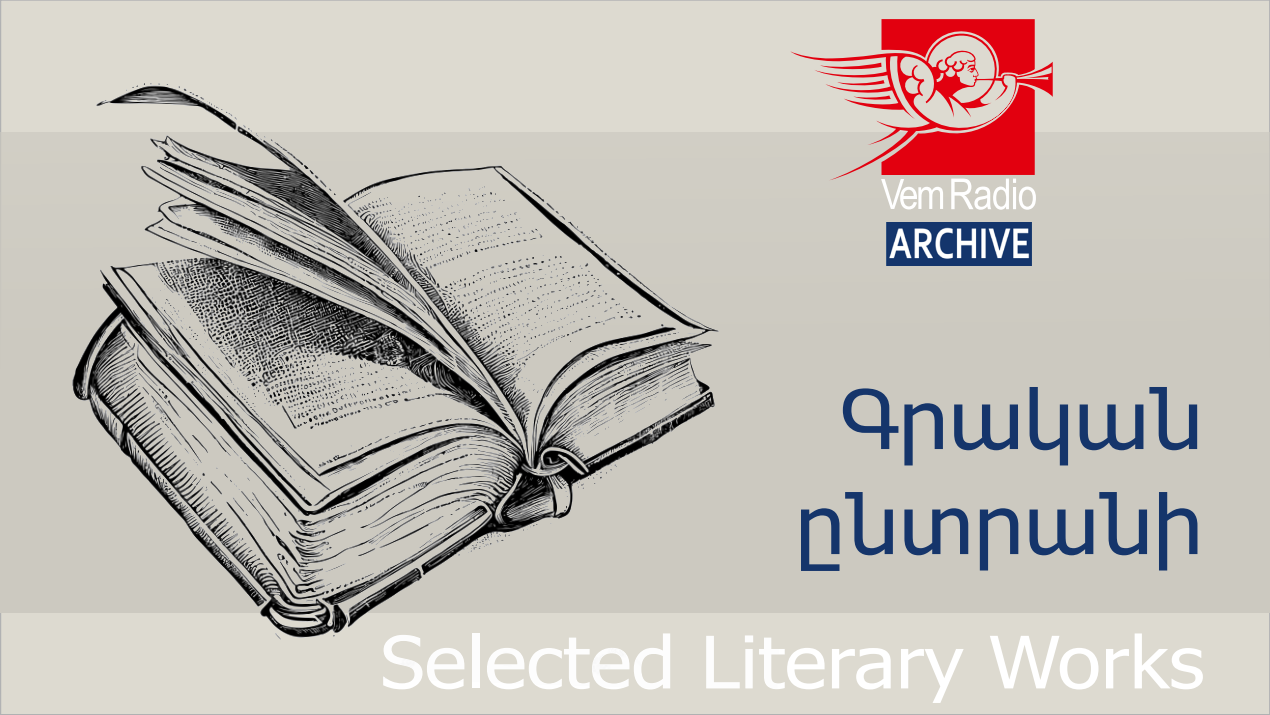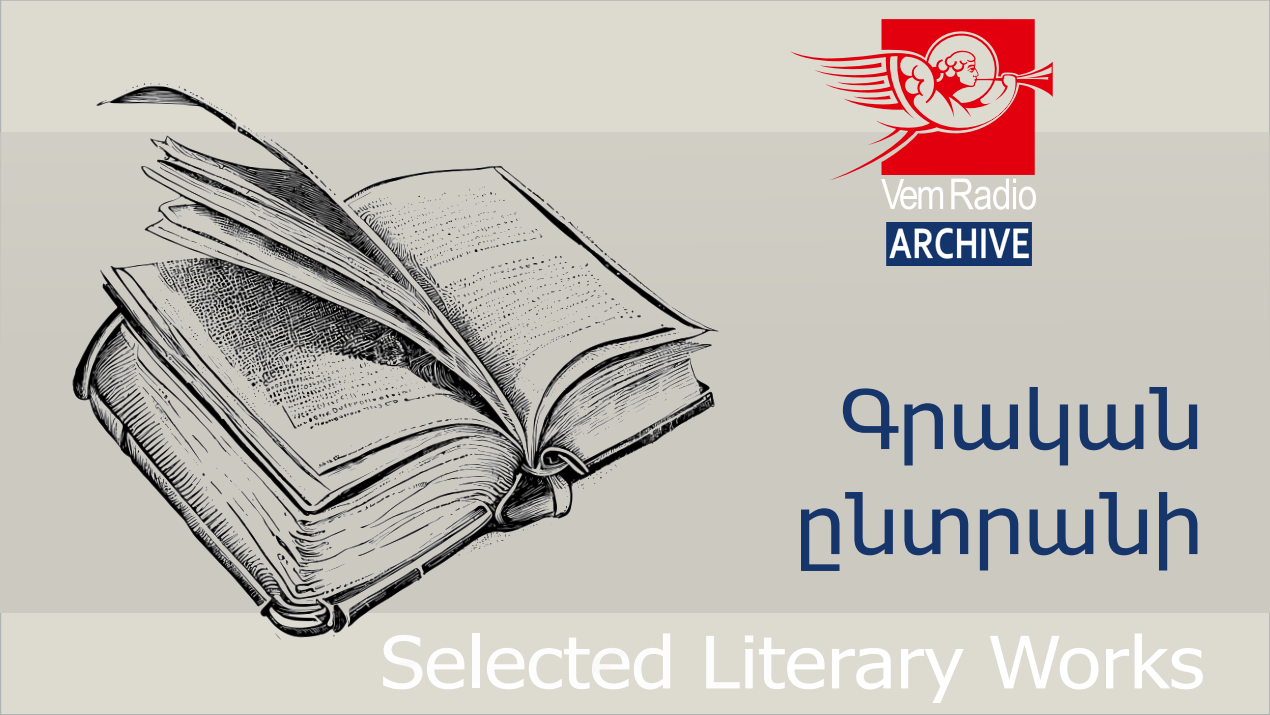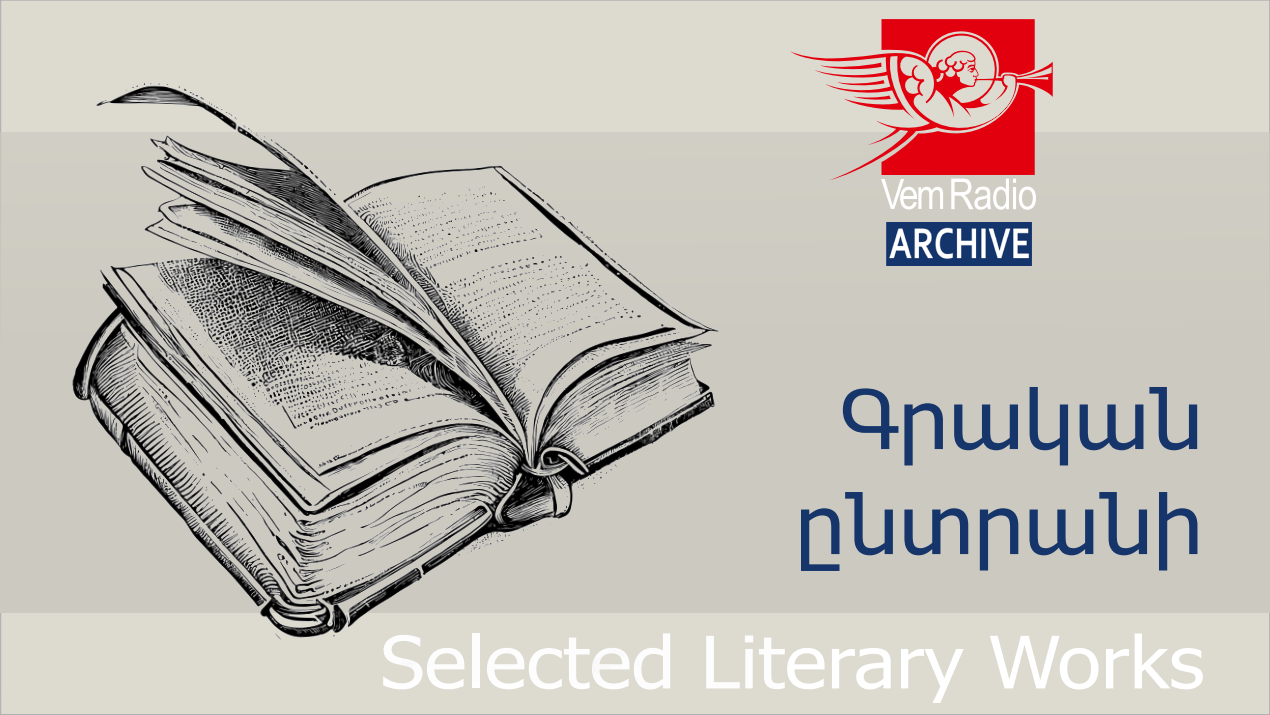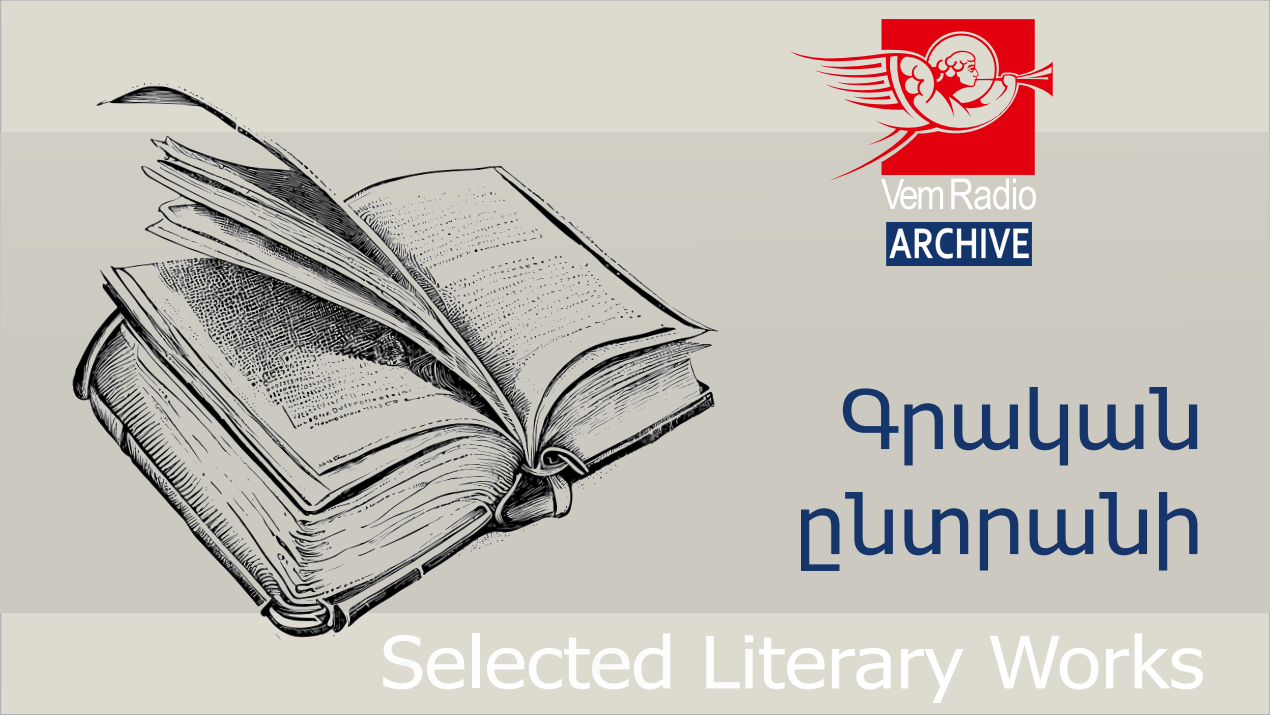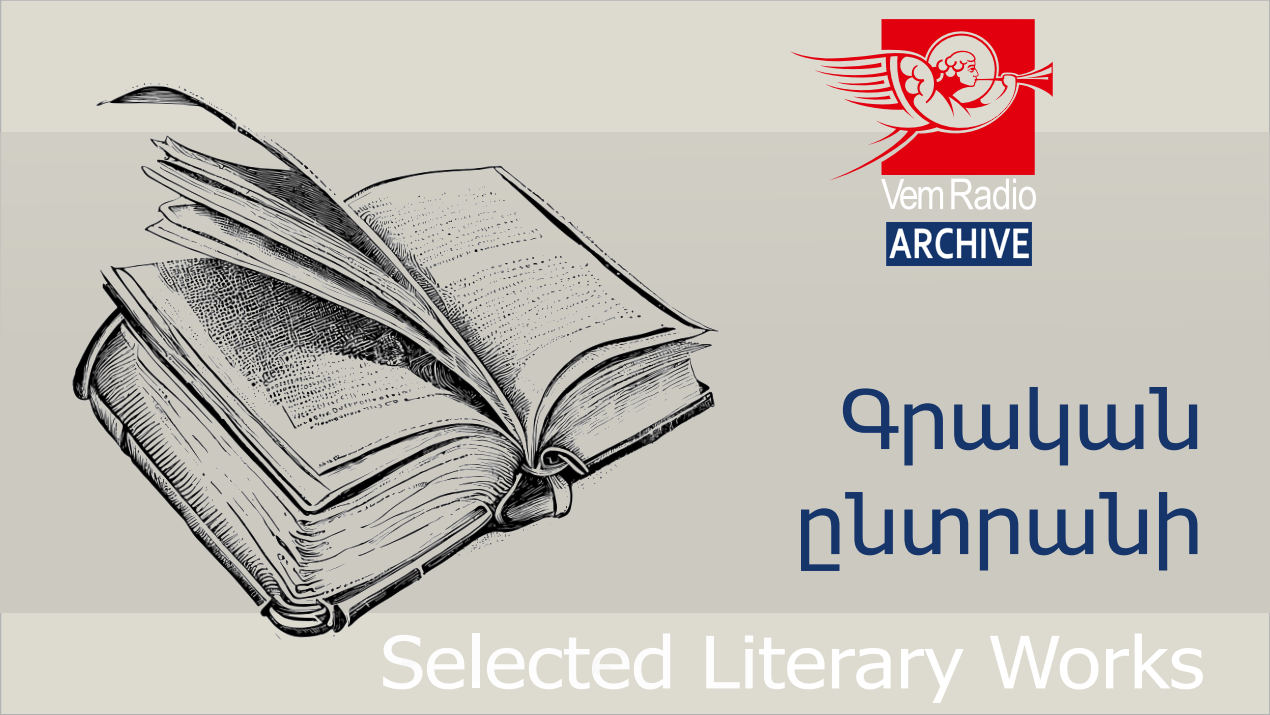
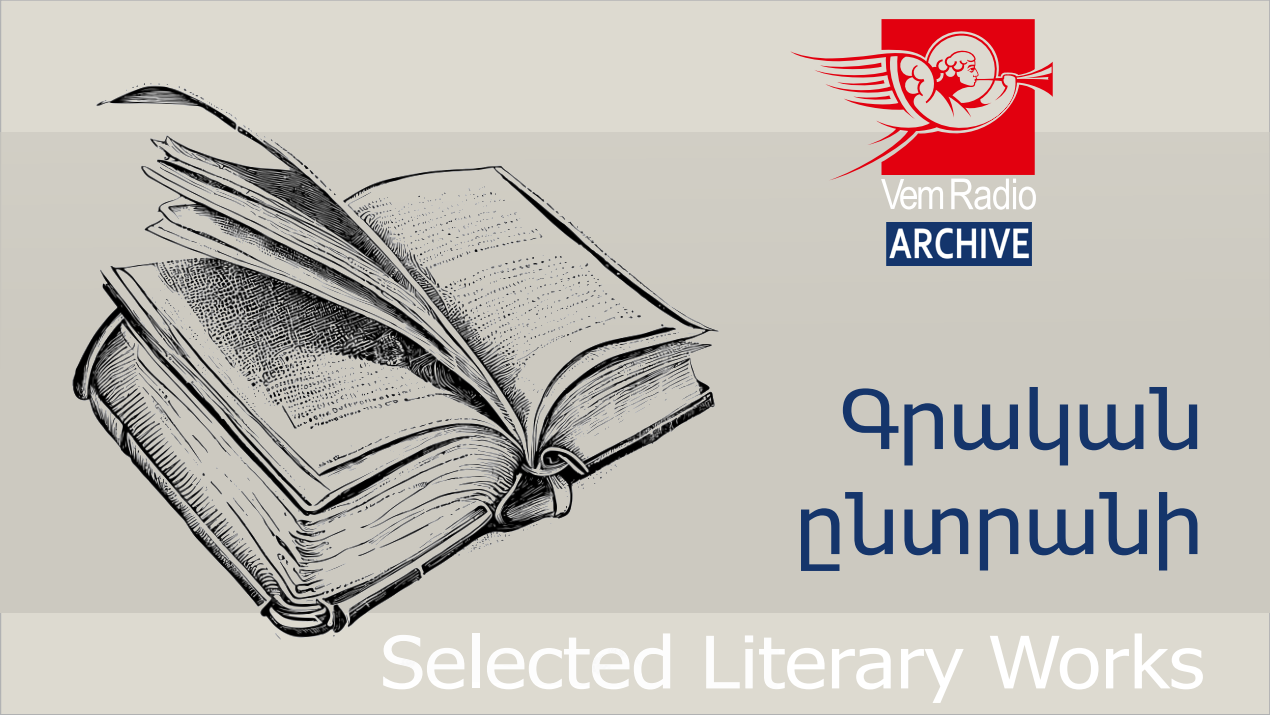
Selected Literary Works
Remarkable writers of the 20th century and their most famous works.
The literary paths taken by modern Armenian writers, and their literary achievements
- Host - Ani Pashayan

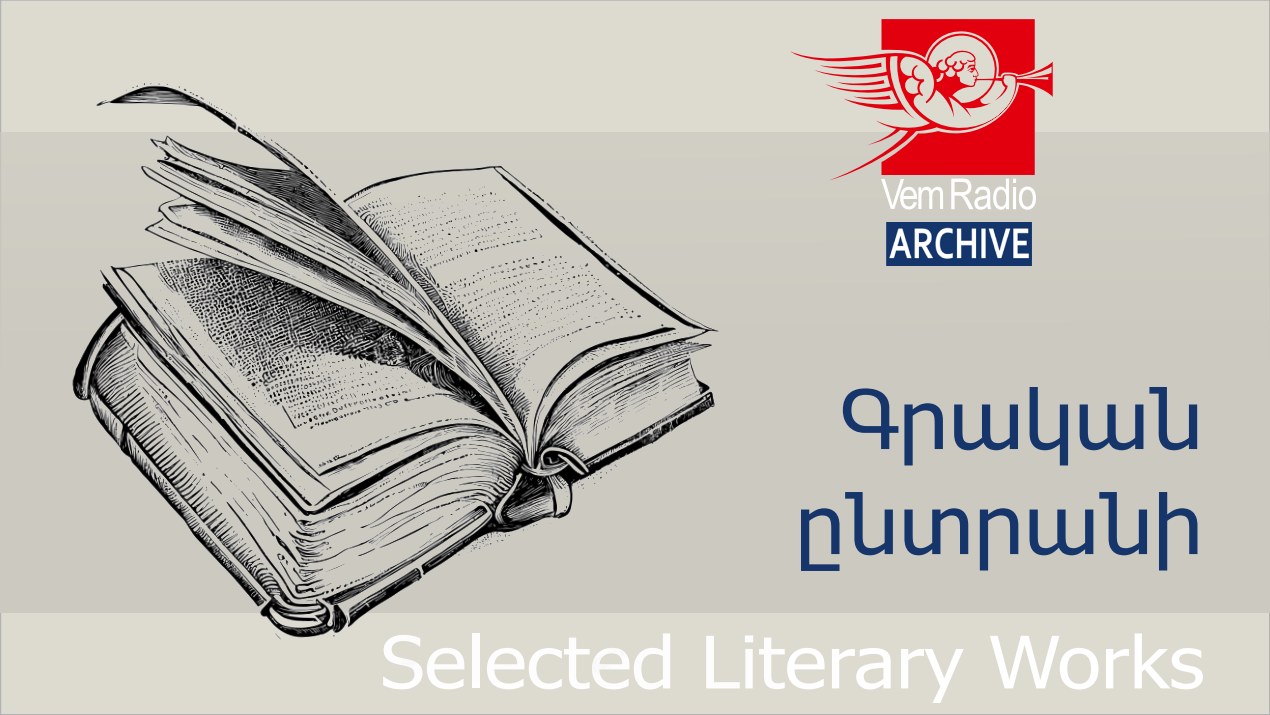
Cuban Literature of the First Half of the 20th Century
Among the Cuban prose writers of the first half of the 20th century were Carlos Loveira, Alfonso Hernández-Catá, and Alejo Carpentier. Poetry collections and series were characterized by the desire of freedom and by the influence of folk art. At the end of the 20s, Nicolás Guillén was famous. His poetry volume "Motives de son" is full of rhythms of folk songs and dances.

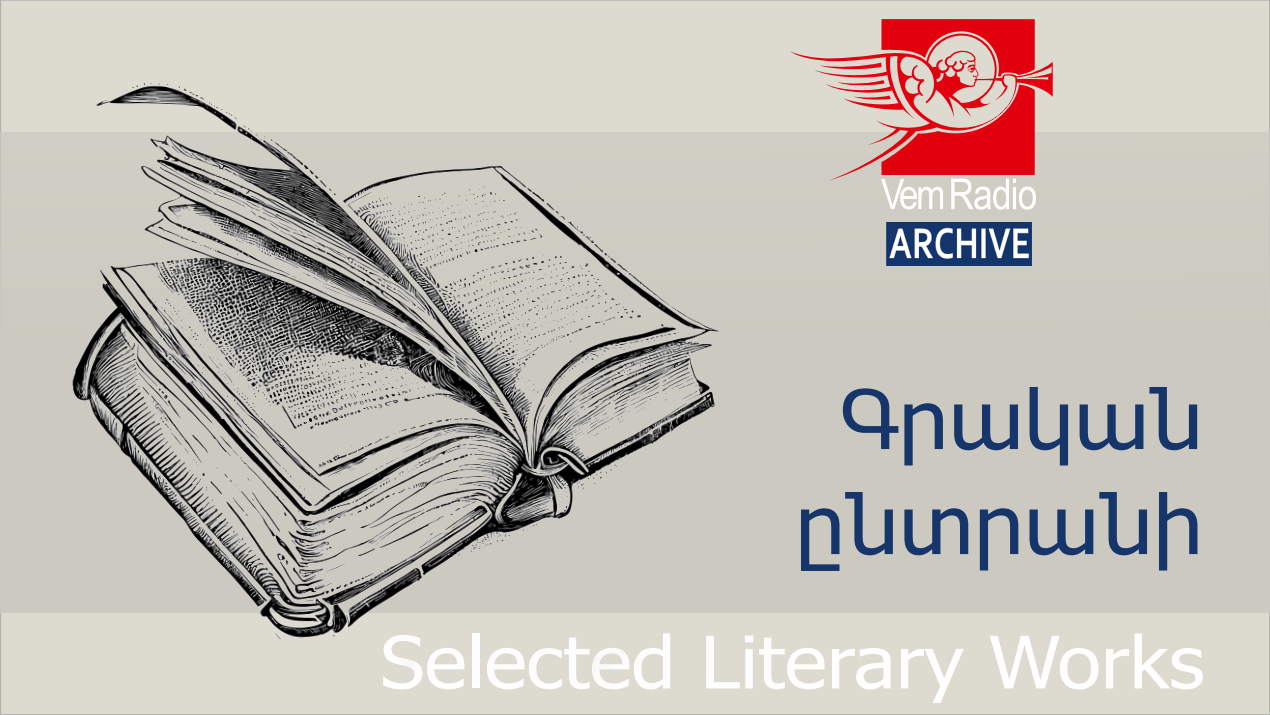
Antonio Machado
Antonio Machado is a representative of the Generation of '98. The birth of his first collection of poems, "Loneliness," coincided with the publication of the collection “Sad Melodies” by outstanding Spanish poet Juan Ramón Jiménez. The poetic world of Machado is quite peculiar. Along with deep personal experiences and doubts, he presents numerous questions that reflect his fears about the present and the future. Also, the nature of his homeland and melodic forms of expression are found in his poetry.

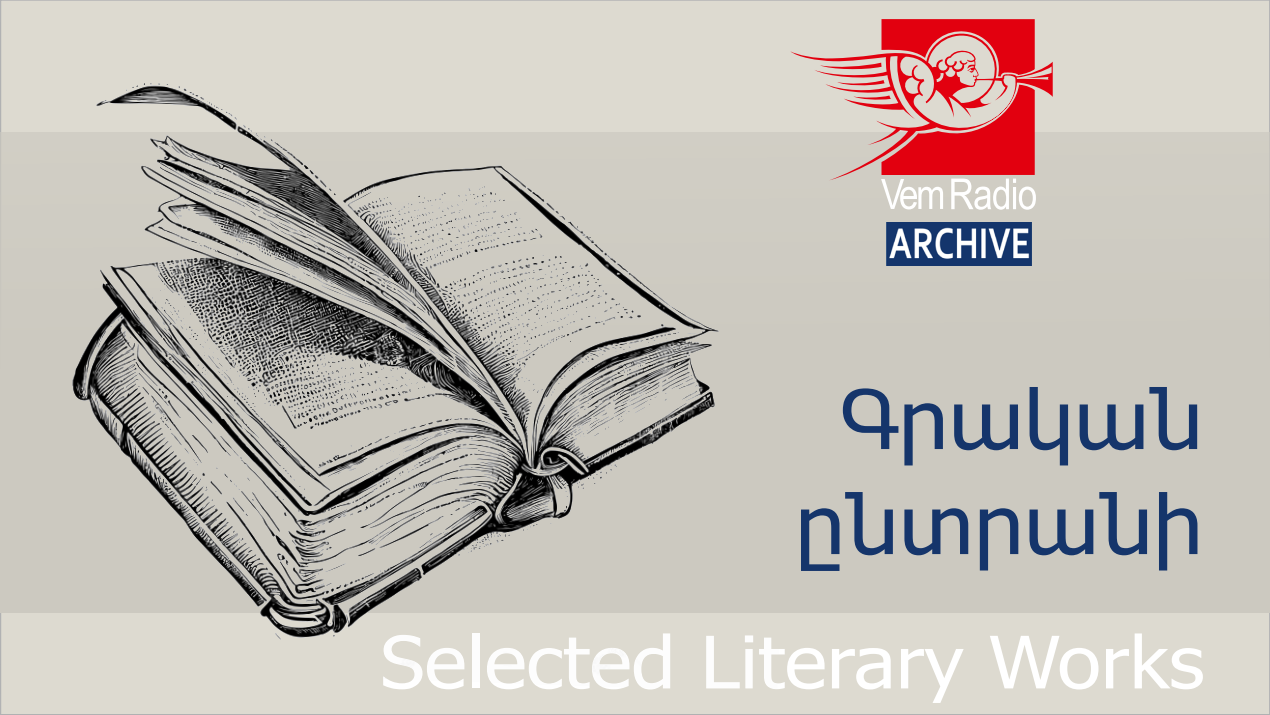
Polish Literature
Polish literature underwent significant changes in the 20s of the 20th century. Futurists who were against grammatical and orthographic rules came to be considered innovative. There was the literary group called "Skamander." Władysław Broniewski and Julian Tuwim were considered the best poets, while Leon Kruczkowski, Maria Dąbrowska and Witold Gombrowicz, the best prose writers...

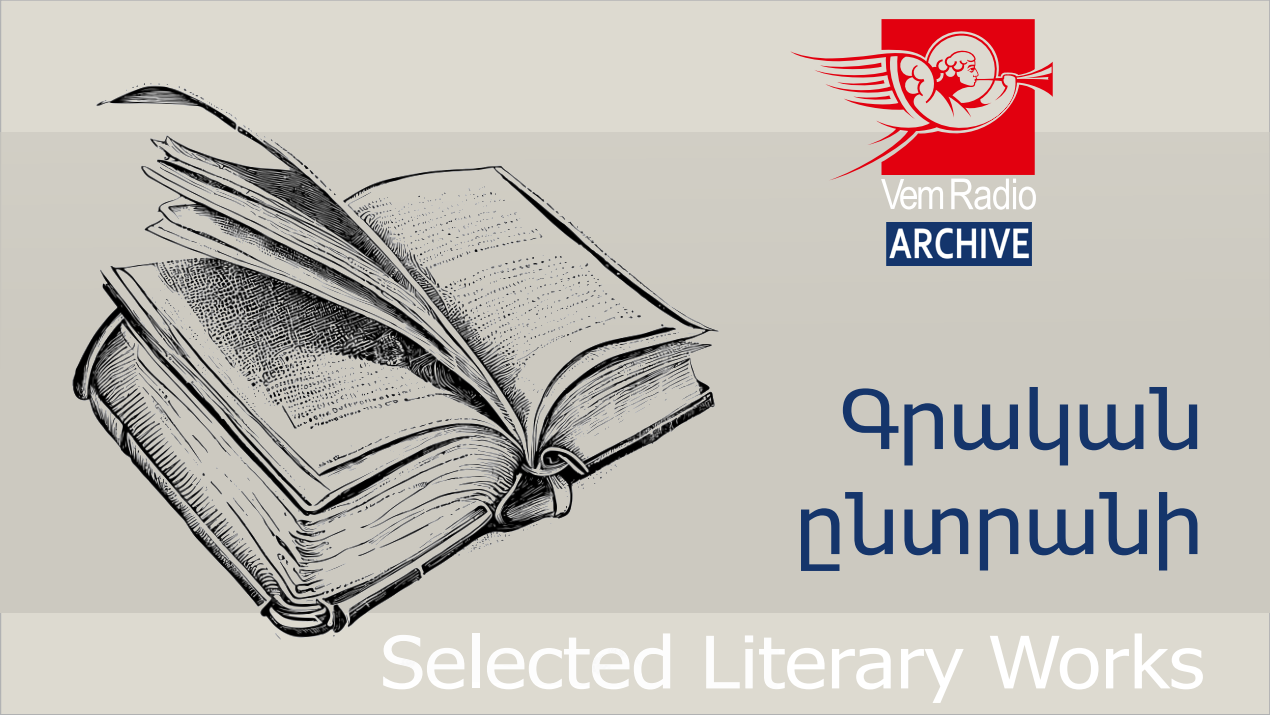
Erich Maria Remarque
This episode is dedicated to the outstanding German novelist Erich Maria Remark. He had an unusual fate. When he was a 17-year-old boy who had just graduated from high school, he went to the front and was wounded five times. After the war, he worked as a teacher in a province and then moved to Berlin. After the death of his mother, Remark took her name as his second name. To meet everyday needs, he was ready for any job. Teacher, racer, worker in the field of trade, editor, journalist – these are specialties that are reflected in the images of his characters.

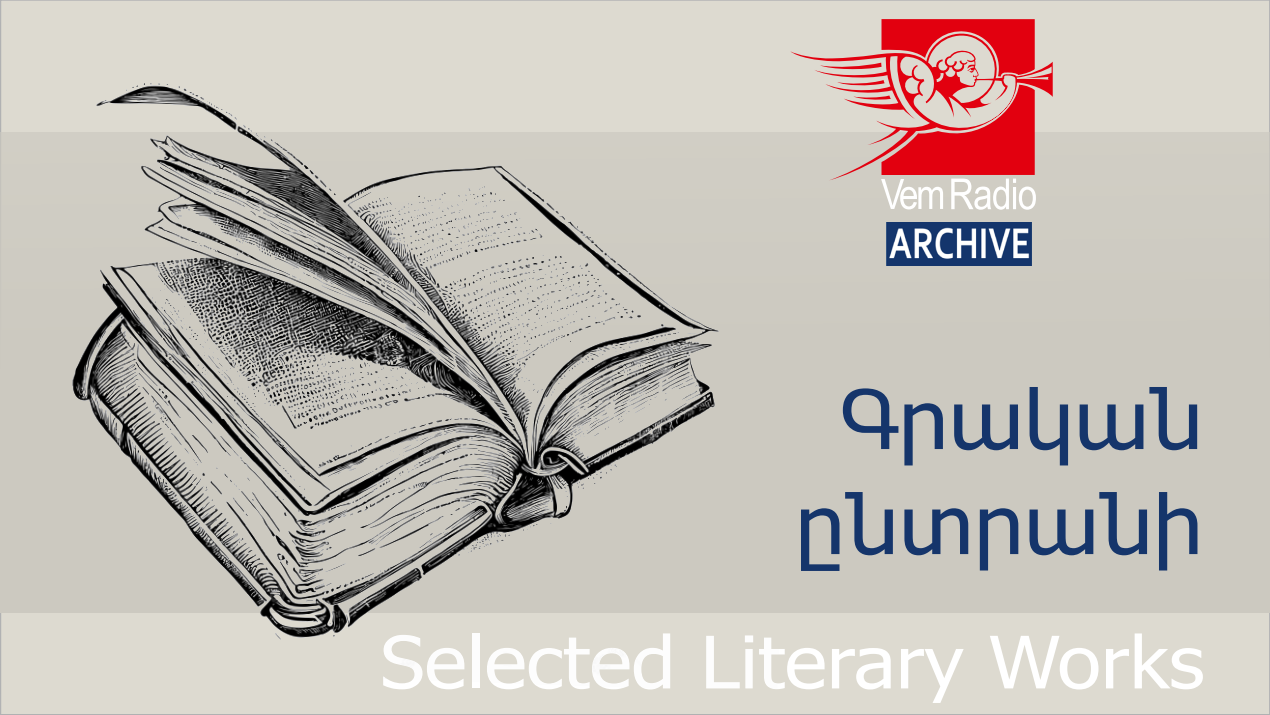
Julio Cortázar
Argentinian novelist, playwright, translator, and poet Julio Cortázar is loved in his homeland, but he is now translated and read in the entire world. The reason is the thirst for freedom in his literature, and he devoted many of his works to this. Using the element of fantasy, he has made the reality of novels more interesting...

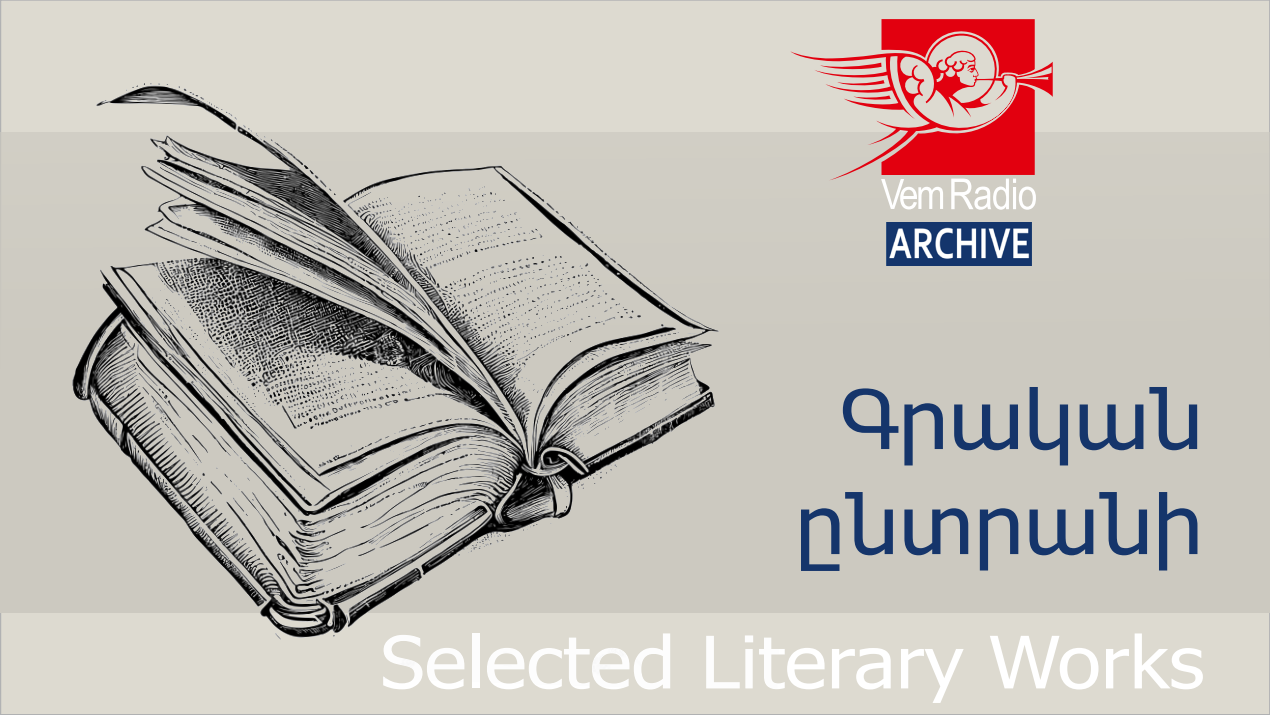
Rainer Maria Rilke
The Austrian writer Rainer Maria Rilke has left a great impact on world literature. His poetic series, letters, and articles are a rich research material for literary critics and art historians. The books of the world's greatest lyrical poet continue being republished not only in his homeland, but also abroad.

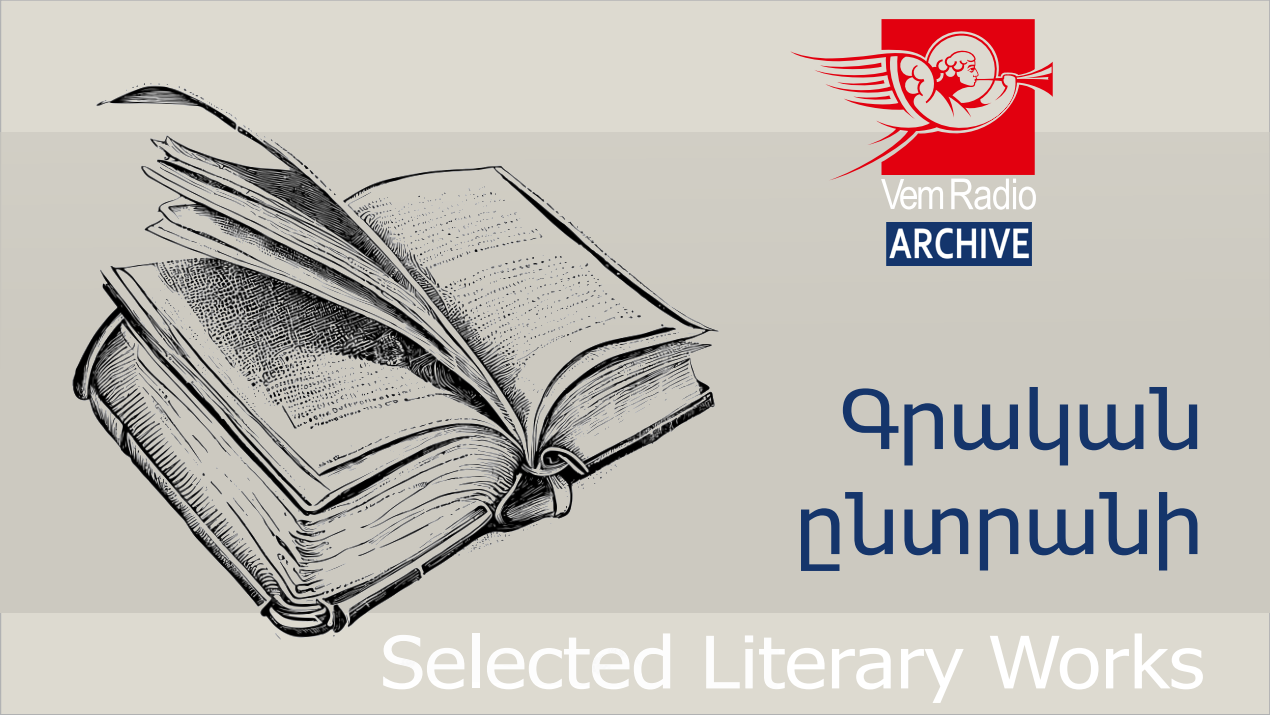
Rafael Alberti
The broadcast is dedicated to the renowned Spanish poet and playwright Rafael Alberti, who recalls his entrance into literature in this way: “We entered into poetry in hard and unquiet times. We should have discovered a new world in order to find there the reality that would remind us of nothing…”

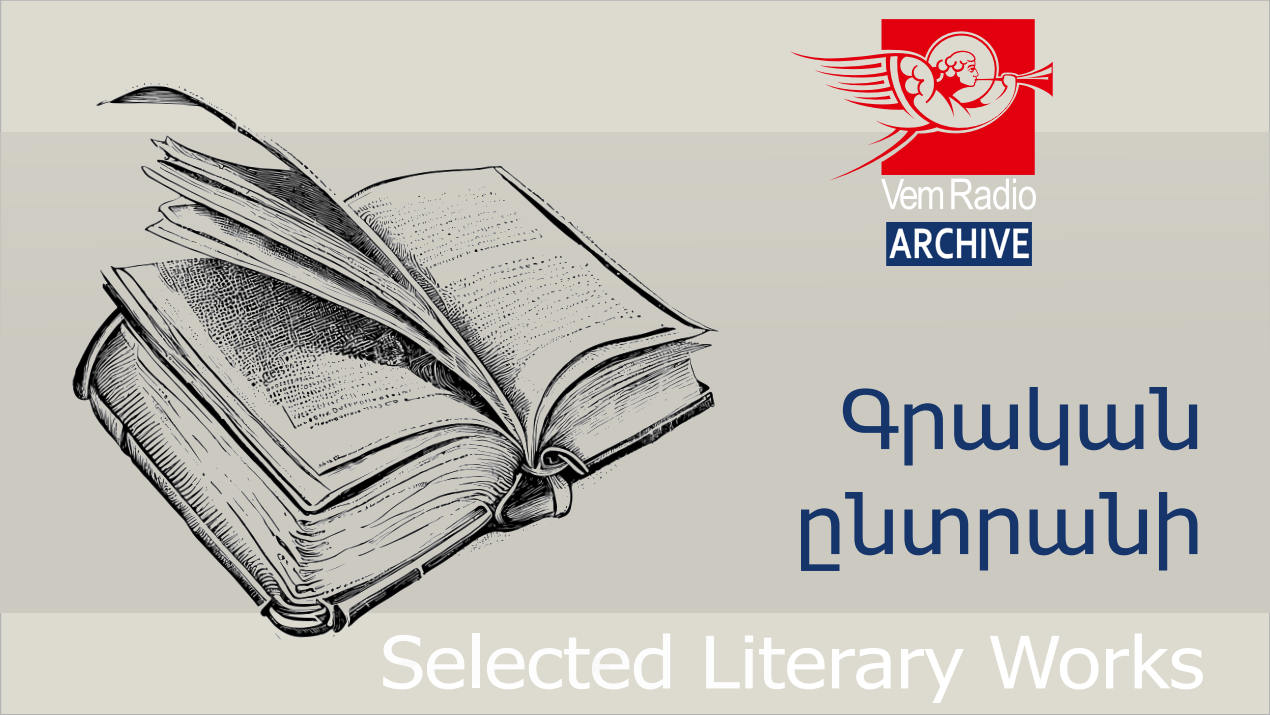
Marcel Proust
The book "In Search of Lost Time" by the French novelist, essayist, and representative of modernism Marcel Proust is considered one of the most important novels of the 20th century. The writer lived in an era when social changes shook Europe. In this novel, written during this period, the writer is not interested in historical or political events, but in the time with conscious flow and in the imaginary world that tries to get its memory back.

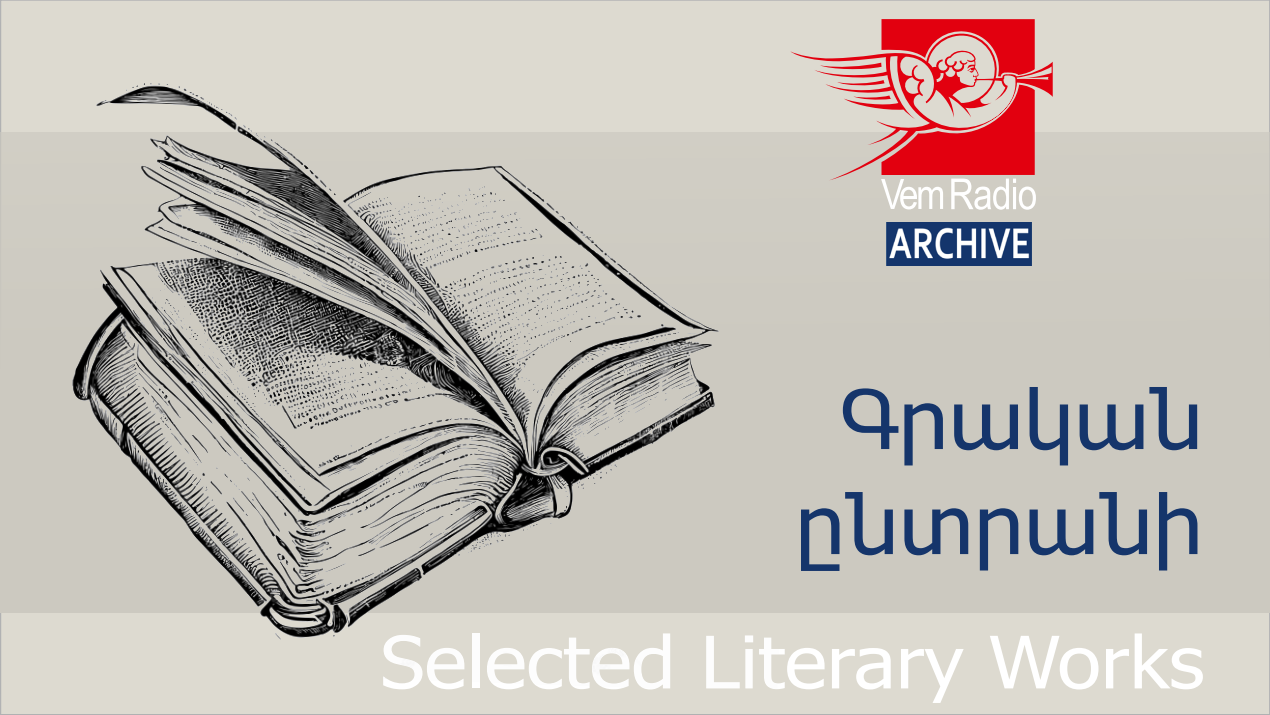
Mexican Poetry
Life in Latin America in the early 20th century is characterized by the economic, political and spiritual conquest policy of the USA against Latin American peoples, which could not but be reflected in literature, especially in anti-imperialist novels of this period. Such literature created in Latin American countries is not deficient in national characteristics and thematic and language manifestations. In the first place, Mexican folk poetry is noteworthy: coplas (quatrains) and cancions (songs), with their mostly revolutionary themes, had a great influence on the further development of Mexican poetry...

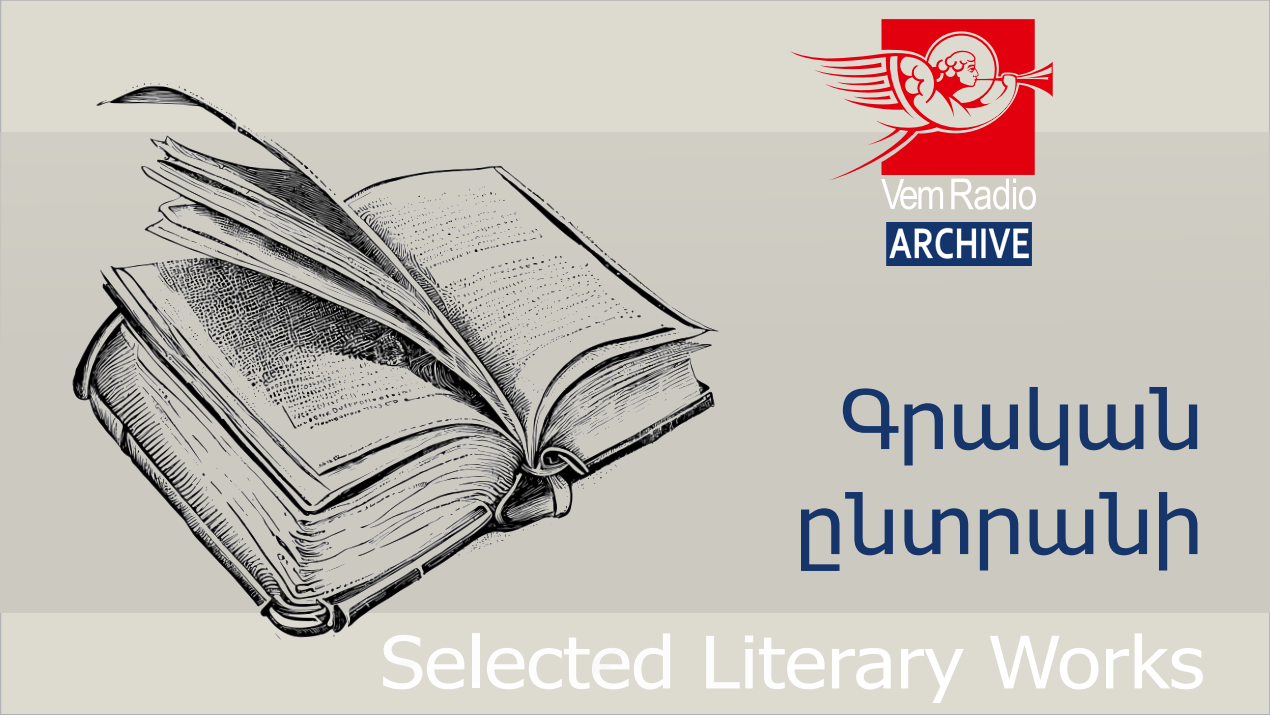
John Galsworthy
The name of the English novelist, playwright, and essayist John Galsworthy is primarily associated with the series of novels "The Forsyte Saga" which made him famous as a great master of realistic prose. Galsworthy's prose is characterized by subtle observantness, sharp criticism, and lyricism. Some of his articles on literature are programs of realistic literature. He considered Tolstoy and Turgenev to be his literary teachers, and his literary orientation was the addressing of social and sociopsychological problems.

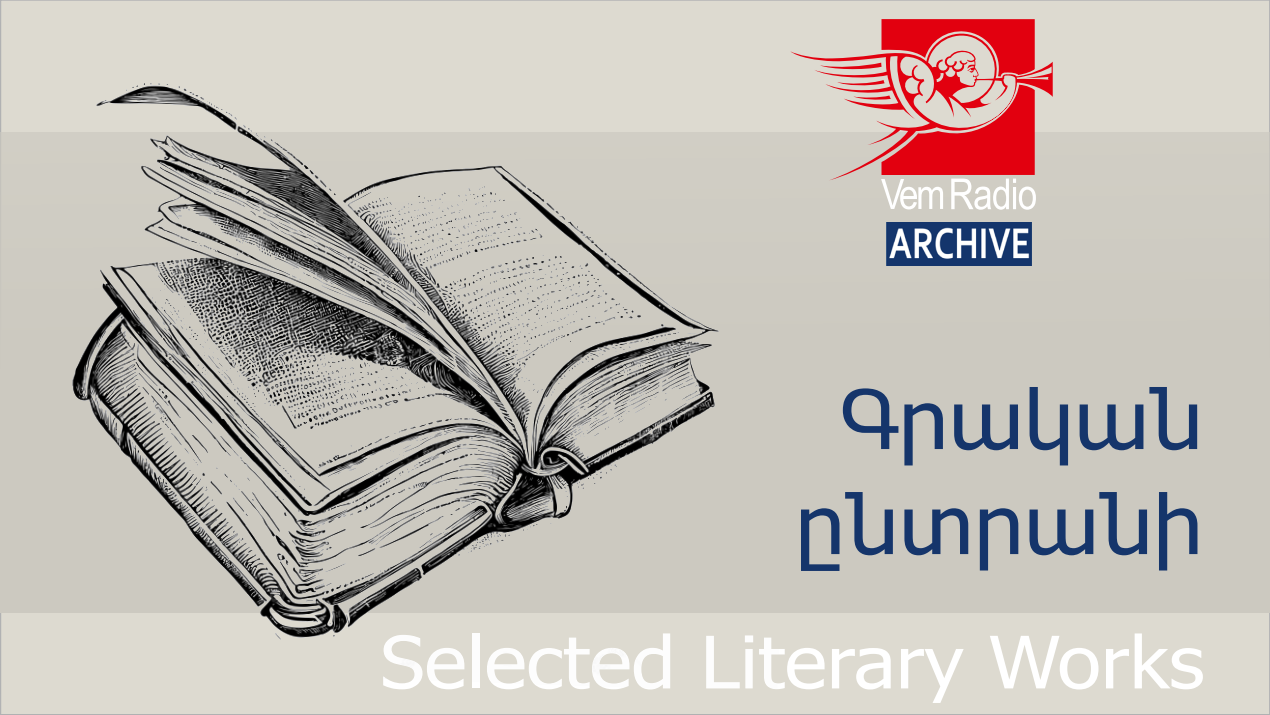
Arnold Bennett
The broadcast is dedicated to the English novelist, playwright, essayist Arnold Bennett. His realistic prose was demonstrated particularly well in his novel "The Old Wives' Tale." He managed to depict masterfully the human drama and unrealized dreams, and to inform everyday reality. This novel, which is about the irreversible motion of life and time, caused conflicting opinions among writers and literary critics…

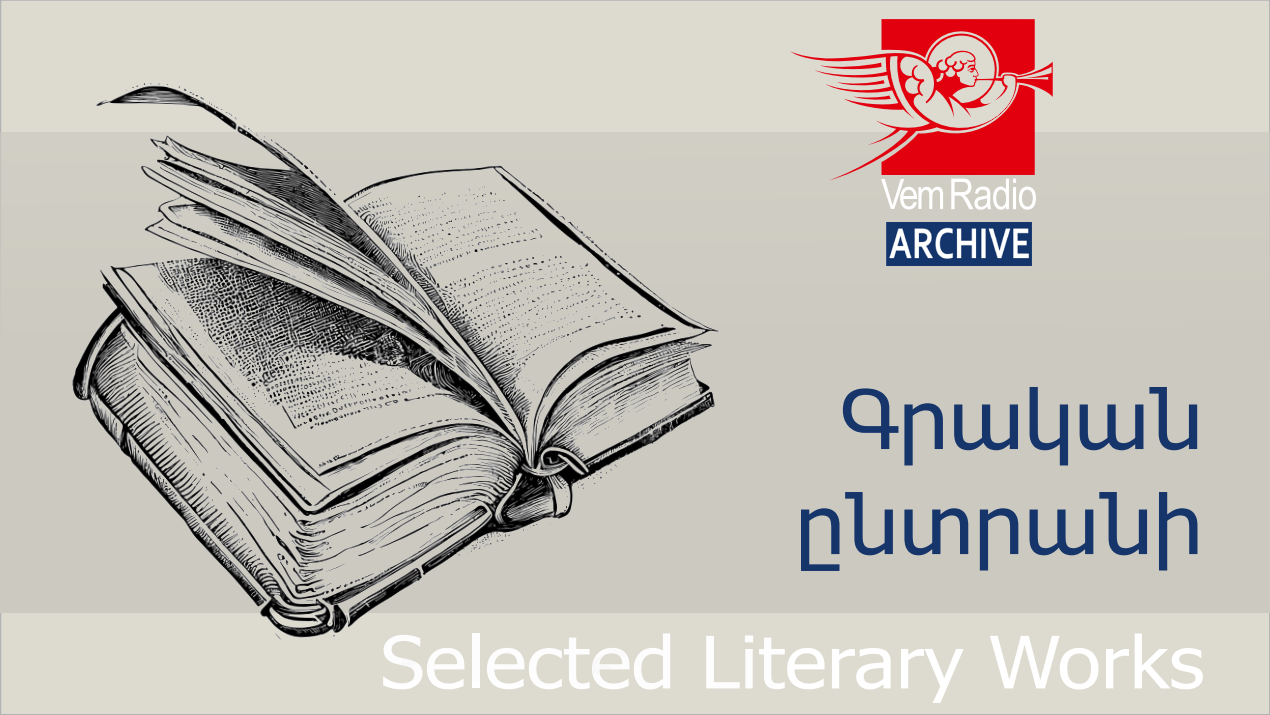
Romain Rolland
The broadcast is dedicated to the French writer and musicologist, Nobel Prize winner as well as public figure Romain Rolland. In 1914 no one was given the Nobel Prize for Literature. Only in 1915, this prize was awarded to Romain Rolland. He had a special attitude toward Armenian culture and music. On the occasion of the translation of his famous novel "Jean Christophe," he compared Armenia, in terms of music, with Italy in the letter-preface of the novel. At the Sorbonne, Rolland organized Komitas's lecture and concert, noting that the music of Komitas is deep, tragic, and valiant, even in its reverie.

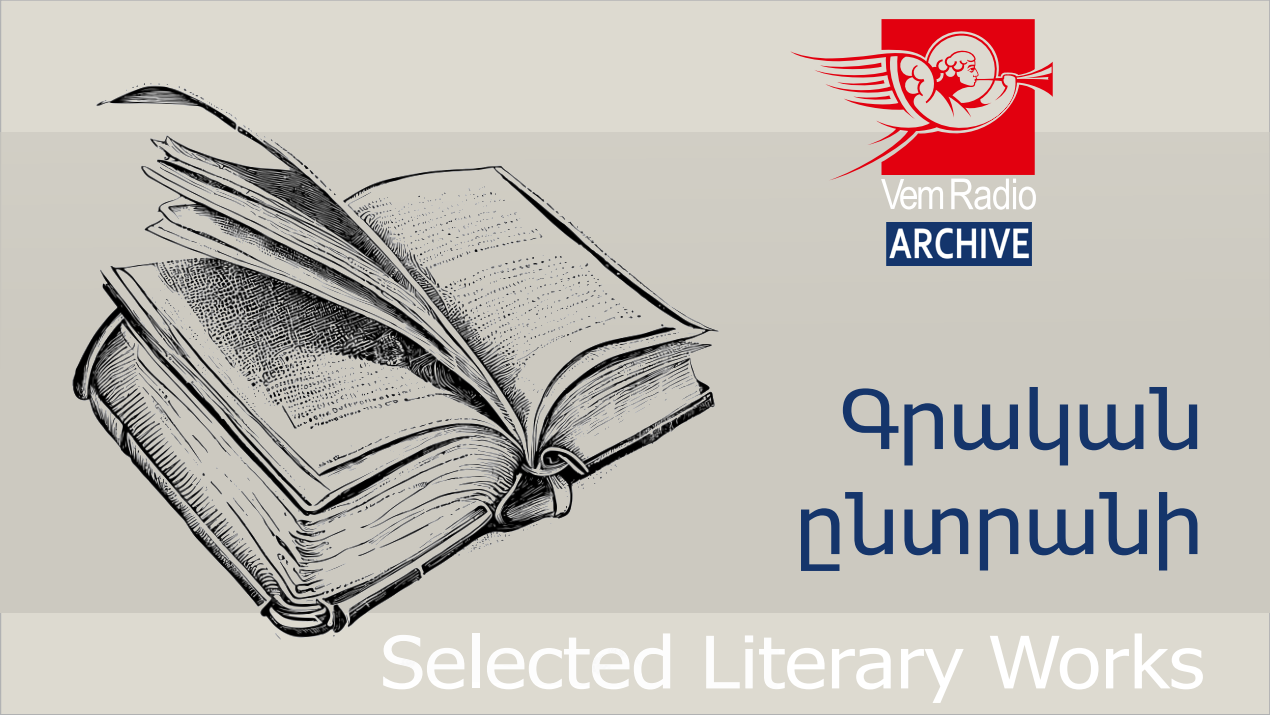
Gabriel García Márquez
The broadcast is dedicated to Colombian writer, Nobel Prize winner, and master of magical realism Gabriel García Márquez. His literary path wasn't easy. Work, sleepless nights, three packs of cigarettes a day, severe illnesses, which he was able to overcome. He also endured the lack of attention from readers and literary critics for a long time. His first works, which he had written with great enthusiasm and much attention, being interesting and innovative, made the writer recognizable much later when he had already completed his largest novel, "One Hundred Years of Solitude."
